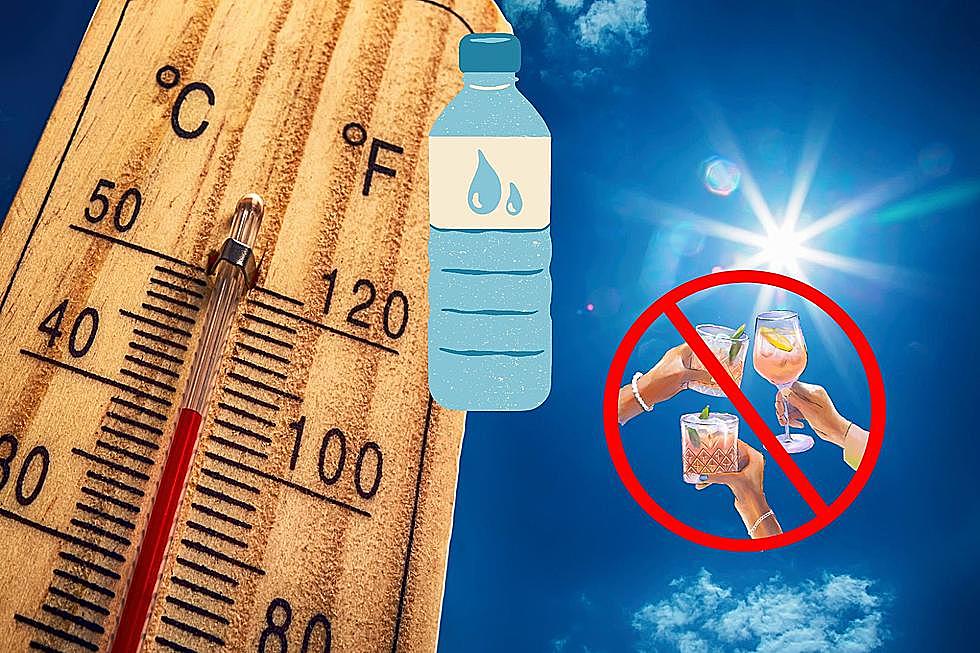
How Dubuque is Bracing for This Dangerous Heat Wave
Sweltering temperatures and ghastly heat indices are going to be the defining traits of much of the Midwest this week, particularly in eastern Iowa. Temperatures are projected to reach 100°F on August 23rd and August 24th, respectively, which could make heat indices climb near 115°F.
Even for a hot, humid Midwest summer, these temps are still pretty uncommon. Should one of these days see a pure temperature of 100°F or more, it would be the first time in over ten years that Dubuque would see triple-digit temps.
The City of Dubuque Warns These Folks Are the Most at Risk:
The City of Dubuque has laudably established several cooling centers in the area where people can enter and get a break from the oppressive temperatures. They did this late-last month when temperatures climbed into the upper 90s. While nobody is safe from extremely humid temperatures, these sectors of the population are particularly at risk:
- People 65 and older
- Infants and young children
- People who are overweight
- Anybody doing any physical activity outdoors
- People who have chronic health conditions, specifically heart disease or high blood pressure
- People who take certain medications, including medicine for depression, insomnia or poor circulation
Cooling Centers in Dubuque:
Per a news release from the City of Dubuque:
- Bunker Hill Golf Course Clubhouse, 2200 Bunker Hill Rd.
- Monday – Thursday, 7 a.m. - 8 p.m.
- Carnegie-Stout Public Library, 360 W. 11th St.
- Monday – Thursday, 9 a.m. - 5 p.m.
- Dubuque Ice Arena, 1800 Admiral Sheehy Dr.
- Monday – Thursday, 6 a.m. - 9 p.m.
- Dubuque Intermodal Transportation Center Lobby, 950 Elm St.
- Monday – Thursday, 6:45 a.m. - 6:15 p.m.
- Dubuque Rescue Mission, 398 Main St.
- Daily, 7 a.m. - 7 p.m.
- Immanuel United Church of Christ, 1795 Jackson St.
- Daily, 5 p.m. - 9 p.m.
- Multicultural Family Center, 1157 Central Ave.
- Monday – Thursday, 9 a.m. - 6 p.m.
- Salvation Army of Dubuque, 1099 Iowa St.
- Monday – Thursday, 9 a.m. - 4 p.m.
The American Red Cross' Tips Can Save Lives:
The American Red Cross has also released some safety tips in order to combat and safely navigate this week's heat wave:
- Hot cars can be deadly. Never leave children or pets in your vehicle. The inside temperature of the car can quickly reach 120 degrees.
- Stay hydrated by drinking plenty of fluids. Avoid drinks with caffeine or alcohol.
- Check on family, friends and neighbors who do not have air conditioning, who spend much of their time alone or who are more likely to be affected by the heat.
- If you don’t have air conditioning, seek relief from the heat during the warmest part of the day in places like schools, libraries, theaters, malls, etc.
- Avoid extreme temperature changes.
- Wear loose-fitting, lightweight, light-colored clothing. Avoid dark colors because they absorb the sun’s rays.
- Slow down, stay indoors and avoid strenuous exercise during the hottest part of the day.
- Postpone outdoor games and activities.
- Take frequent breaks and use a buddy system when working outdoors.
- Check on animals frequently to ensure that they are not suffering from the heat. Make sure they have plenty of cool water and shade.
- Excessive heat can lead to sunburn, heat cramps, heat exhaustion and heat stroke. If someone is experiencing heat cramps in the legs or abdomen, get them to a cooler place, have them rest, lightly stretch the affected muscle, and replenish their fluids with a half a glass (about 4 ounces) of cool water every 15 minutes.
In the meantime, stay cool, stay hydrated, and be weather aware with the NWS 7-Day Forecast.
LOOK: The most extreme temperatures in the history of every state
More From Y105







